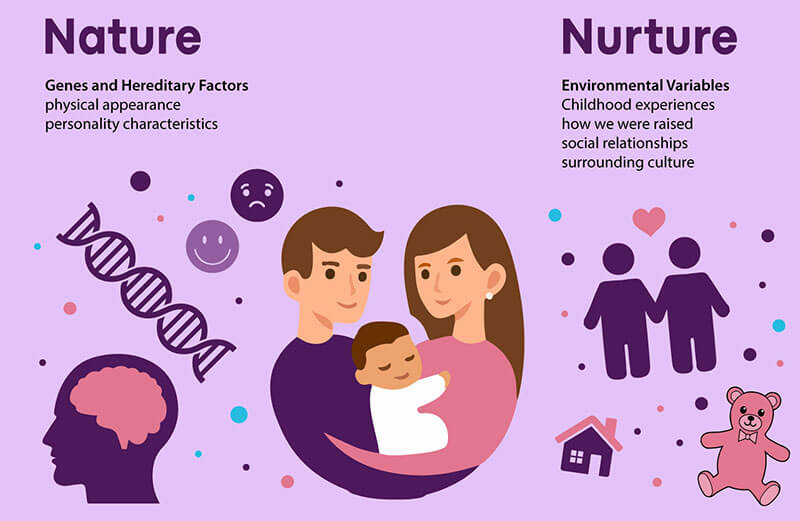The nature vs. nurture debate
The nature vs. nurture debate: How much of our minds are shaped by our genetics, and how much by our environment?
The nature vs. nurture debate is one of the most enduring and contentious issues in psychology and the social sciences. The debate centers around the extent to which our genes (nature) or our environment (nurture) determines our behavior, personality, and other mental characteristics.

Proponents of the nature side argue that genes dominate in shaping our minds, determining traits like height, eye color, intelligence, and personality.
For example, research has shown strong associations between certain genetic variations and traits like intelligence, shyness, and impulsivity.
On the other hand, supporters of the nurture side of the debate argue that our environment plays a crucial role in shaping our minds. They argue that our experiences, upbringing, and socialization are the most important factors that shape our behavior and personality.
Children raised in abusive or neglectful environments are more prone to develop mental health issues in adulthood.
Most researchers agree that both nature and nurture are vital in shaping our minds, despite the ongoing debate.
Our genes establish the foundation for mental development, while our experiences and environment dictate how our genes express themselves and shape the development of our minds.
One way that researchers study the interplay between nature and nurture is through twin studies. Identical twins share the same genetic makeup, while fraternal twins share only half of their genes.
Comparing behavior and personality in identical and fraternal twins helps researchers estimate genetic and environmental influences on individual differences.
Twin studies indicate genetics contribute about 50% to IQ score variances, with education and upbringing also influencing intelligence significantly.
Another way that researchers study the nature vs. nurture debate is through studies of adopted children. Adoptive parents do not share genetic similarities with adopted children, but they often raise them in similar environments.
By comparing adopted children’s behavior and personality with their biological and adoptive parents. Researchers can estimate the contributions of genetics and the environment.
Studies of adopted children show that genetics significantly influence intelligence, but the environment also plays an important role.
One study found that adopted children’s IQ scores correlated more with their biological parents than their adoptive parents.
Researchers also use molecular genetics to study how genes interact with each other and the environment. This field examines how these interactions produce complex traits and behaviors.
For instance, the COMT gene variant links to cognitive flexibility, impacting individuals under high stress. Showing that environmental factors can influence gene expression and mental traits.
Conclusion
The nature vs. nurture debate is a complex and ongoing discussion in the field of psychology and the social sciences. Though much is still unknown, researchers agree that both genetics and environment shape our minds.
Studying genetics and environment via twin, adoption, and molecular genetics studies helps understand mental development and behavior. 온라인카지노